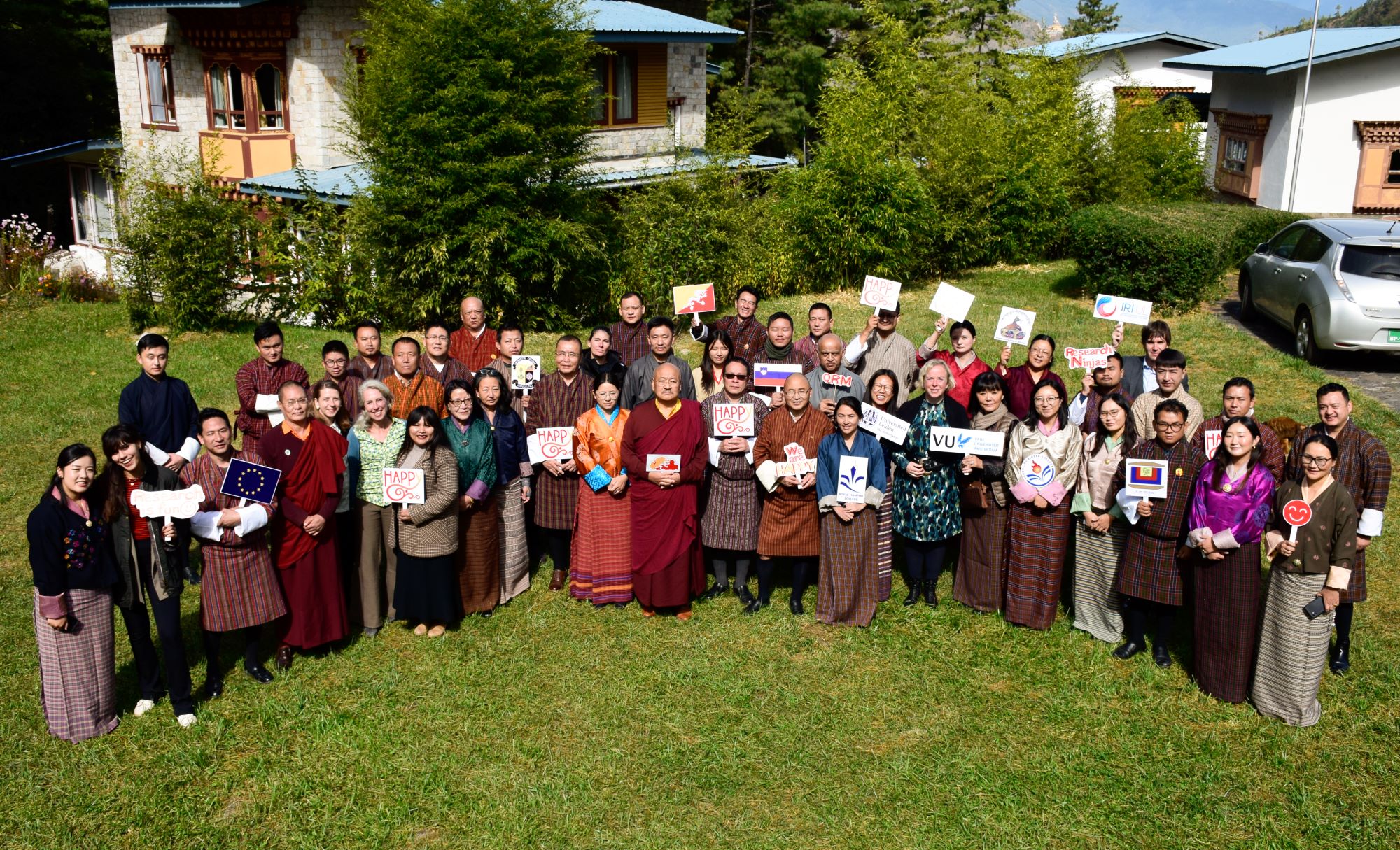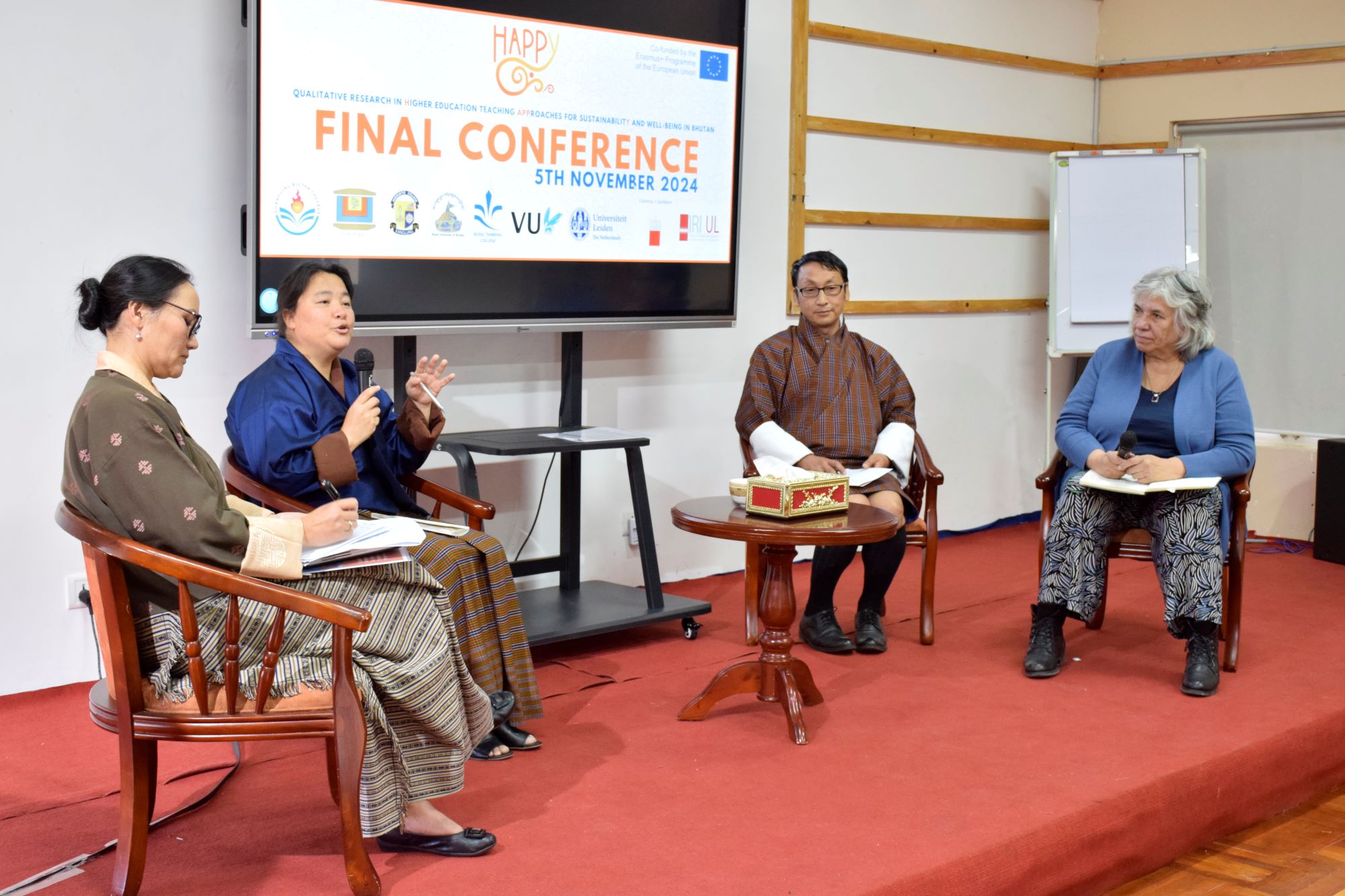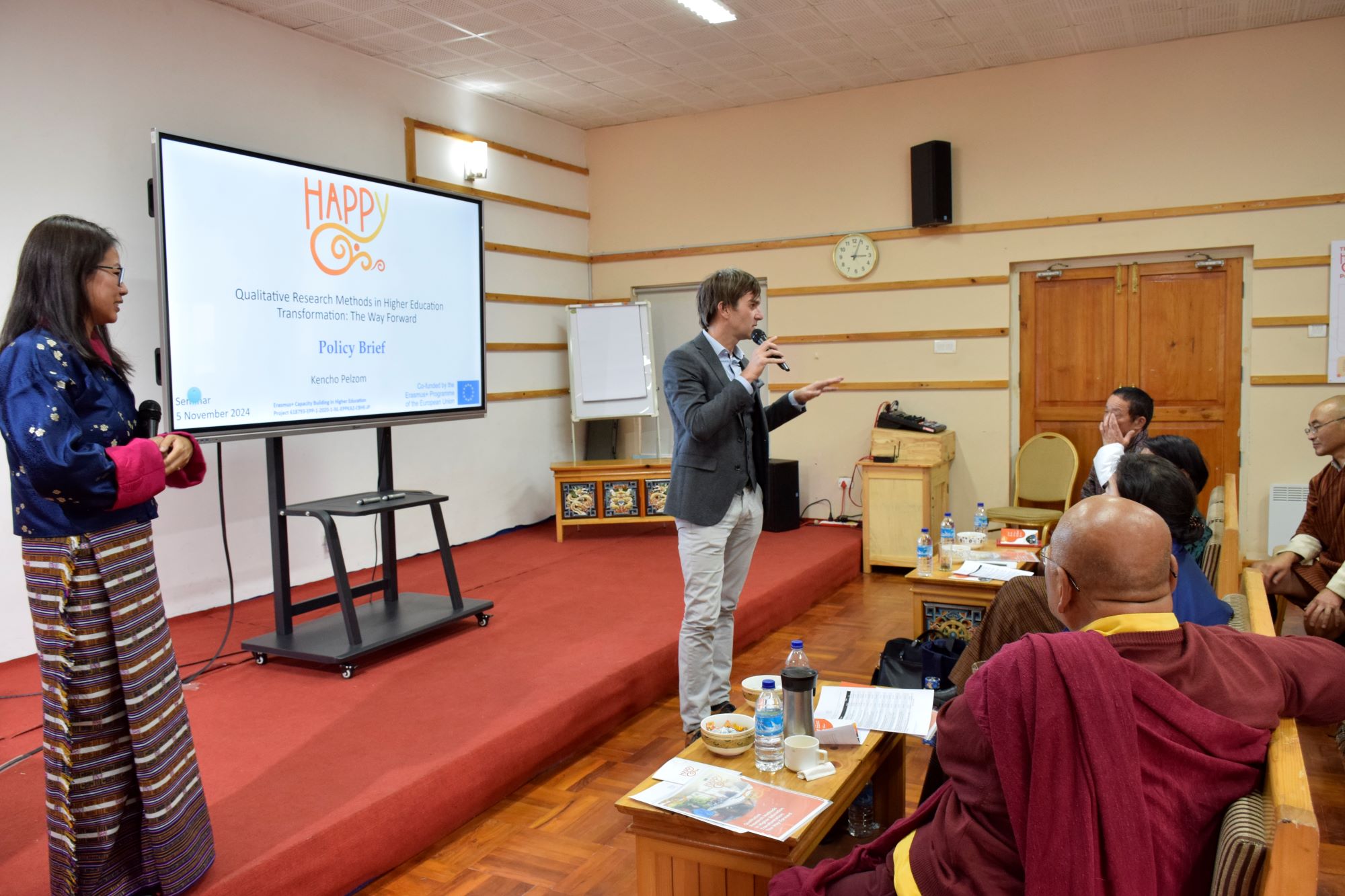25.11.2024
The HAPPY Project Final Conference in Thimphu in Bhutan
The HAPPY Project held its Final Conference on November 5th and 6th, 2024, at Royal Thimphu College (RTC) in Bhutan, concluding a four-year collaboration aimed at advancing qualitative research in higher education. Partners from 4 Bhutanese colleges (Royal Thimphu College, Sherubtse College, College of Language and Culture Studies, and Norbuling Rigter College) and European organizations, including Vrije Universiteit Amsterdam, Leiden University, University of Ljubljana, and IRI UL, gathered to reflect on the project’s achievements and impacts.
This milestone event underscored the unique collaborative experience in Bhutan. The country’s emphasis on patience, cultural sensitivity, inclusivity, and respect for diversity shaped the project’s outcomes and processes. These principles fostered mutual understanding and collective decision-making, ensuring the project’s goals are aligned with local realities and priorities. This people-centered approach enriched not only the project’s results but also the relationships formed throughout its four years.
The conference included presentations from Bhutanese colleges, highlighting the integration of qualitative methodologies into their existing curricula, as well as research outcomes on local development, waste management, and linguistic landscapes. Discussions emphasized the project’s enduring influence, including the establishment of a Qualitative Research Methods Lab, a state-of-the-art audio/visual studio, and Learning Management System, which will continue to support education and research in Bhutan.
Reflections during the event also highlighted the challenges faced, including navigating the COVID-19 pandemic and aligning diverse institutional goals, as well as the adaptive strategies that enabled the project’s success. Despite these hurdles, the collaborative spirit of the HAPPY Project fostered impactful outcomes and inspired new avenues for research and capacity building.
For IRI UL, participation underscored the importance of interdisciplinary collaboration and cultural sensitivity in research. The HAPPY Project’s legacy lies in its people-centered approach and the tools it has provided to empower Bhutanese higher education, leaving a foundation for continued development and innovation.


